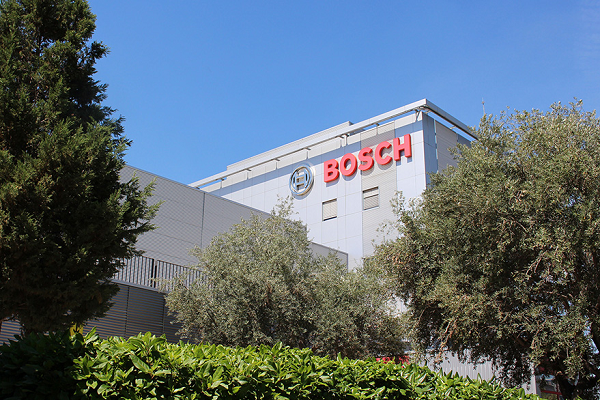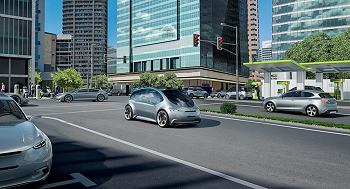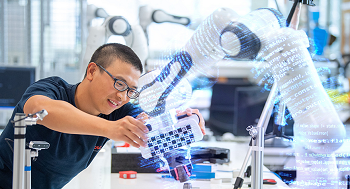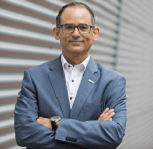The Bosch factory in Aranjuez has just been commissioned to design and produce a key component for electric vehicles

German engineering and technology multinational Bosch was founded in 1886 and began operating in Spain in 1908, over a hundred years ago. Production in Spain began in 1967, with the acquisition of a 50% share in Constructora Eléctrica Española. Eleven years later, the company increased its presence by acquiring a majority stake in Fábrica Española Magnetos (Femsa).
Today, Bosch has 20 facilities in Spain and employs around 8,000 people. Of particular note are the two automotive production centres in Madrid, and the four centres focused on the domestic appliance industry. This is in addition to the innovation hub in Valencia, where semiconductors for the radar sensors that equip ADAS systems (advanced driving assistance systems) are developed.


Bosch has a long history, but it has evolved over the years and remains at the forefront of innovation. What are the most important lines of business for the group's Spanish subsidiary?
First of all, I would like to say that what sets Bosch apart is that we belong to a foundation, the Robert Bosch Foundation, and that our financial independence allows us to define ourselves in terms of where and how we innovate. Our main strategic focus is on three specific areas: automation, electrification and digitalisation. To do this, we bring technology, software and services to the market in four business areas: Mobility solutions: we are one of the world's largest providers of mobility solutions; consumer goods: encompassing power tools and domestic electrical appliances; energy and building technology: we are a world-leading manufacturer of energy-efficient heating products, as well as safety and communications technology; and finally industrial technology: we provide drive, process and Industry 4.0 technology. All these lines of business are important in Spain.
Among these, the automotive components industry is of great importance. What does your presence in Spain bring to the group?
On the one hand, Mobility Solutions is Bosch's largest business area, and on the other hand, Spain is very important to the automotive industry on a global level, as we are the second largest vehicle manufacturer in Europe, and the ninth largest in the world. Apart from supplying car manufacturing plants in Spain, we have two production sites. The Madrid plant produces ultrasonic sensors, which are essential for ADAS and automated vehicle systems, as well as airbag sensors. Furthermore, this plant is what we at Bosch call a “lead plant”, whose function is to coordinate the other factories within the group that produce similar components, in this case in Mexico and China. The Aranjuez (Madrid) factory is quite diverse in terms of what it produces, but I would like to point out that it has just been commissioned to design and produce a key component for electric vehicles: the power inverter connector, which converts direct current from the battery into high voltage alternating current to power the electric motor. Both plants are therefore on track to support the transformation of mobility and the shift towards electrified, connected and automated vehicles.
How important is Spain for the group's strategy?
Spain is one of the most strategically important countries for the Bosch Group, as it is the fifth largest European country in terms of sales and the eighth largest worldwide. Moreover, Bosch employs around 8,000 people in Spain, which also makes the workforce in Spain one of Bosch’s largest in Europe.
What infrastructure do you have in Spain?
In addition to the two mobility solutions factories mentioned above, we have three business process outsourcing sites in Vigo, Barcelona and Madrid. Bosch Rexroth, which develops customised solutions for industrial automation applications, mobile equipment and commercial vehicles, as well as renewable energy, is located in San Sebastián. The sales departments for the different Bosch business areas, as well as the central departments, are located at our headquarters in Madrid. Finally, Zaragoza is home to the headquarters of BSH Electrodomésticos, which is wholly owned by Bosch and has four production sites.
Now that so many companies are opening innovation centres in Spain, what initiatives of this kind has Bosch launched?
Innovation is embedded in the company's DNA. Bosch seeks to improve quality of life around the world, with innovative products and services that inspire. In short, Bosch creates technology that is, as our slogan says, “Invented for life”. Worldwide, Bosch spends billions of euros each year on R&D, around 8% of our sales revenue. In Spain, innovation is also very important, mainly at our production plants, which participate in different innovation projects, and many of them with other organisations, both nationally and internationally. Bosch does in addition have an innovation hub in Valencia with strong growth prospects, and which is dedicated to developing semiconductors for the radar sensors that equip ADAS systems.
What have been the most important investments you have made in Spain in recent years?
Apart from investments aimed at improving our production capacity and taking part in different innovation projects, both nationally and internationally, we have also invested in achieving climate neutrality at all our locations in Spain, just as we have done worldwide. Bosch was the first major global company to achieve carbon neutrality at its more than 400 locations all over the world by 2020. In Spain, major investments were made in solar energy projects and in improving the efficiency of our production facilities.
How do you assess the education and training of the engineers and other Spanish professionals that join the company?
We employ around 8,000 people in Spain, and as a company we are a very attractive employer among job seekers. Our assessment is very positive and in fact Spanish engineers are highly valued by our colleagues in Europe. Apart from technical knowledge, which they are expected to have once they have completed their degree and are integrated into the world of work, it is important that they develop and strengthen other fundamental skills, such as teamwork, the ability to make decisions and to interact, communicate and lead projects. And this is something that a company like Bosch can help them achieve.
What are the next challenges?
Bosch will continue to invest in Spain, as it is a strategically important country for the group. As an example, Bosch Spain has been integrated into Future: Fast Forward, the largest business group in the history of the Spanish automotive industry. Its aim is to promote the development and manufacture of electric and connected vehicles, and to make Spain the European hub for electromobility. We are participating in the manufacturing segment by producing specific components for electric and connected vehicles, developing products and investing in new production processes. We are also focusing on hydrogen, as Europe needs a hydrogen economy to achieve climate neutrality, and we have solutions for this, including mobile and stationary fuel cells, heating boilers and components for electrolysers. Technology is opening up opportunities for growth that we want to seize. Our “Invented for life” motto is ideally suited to this context, not only when it comes to the major trends in electrification, automation and digitalisation, but also with regard to software and artificial intelligence.
Photos: Bosch



